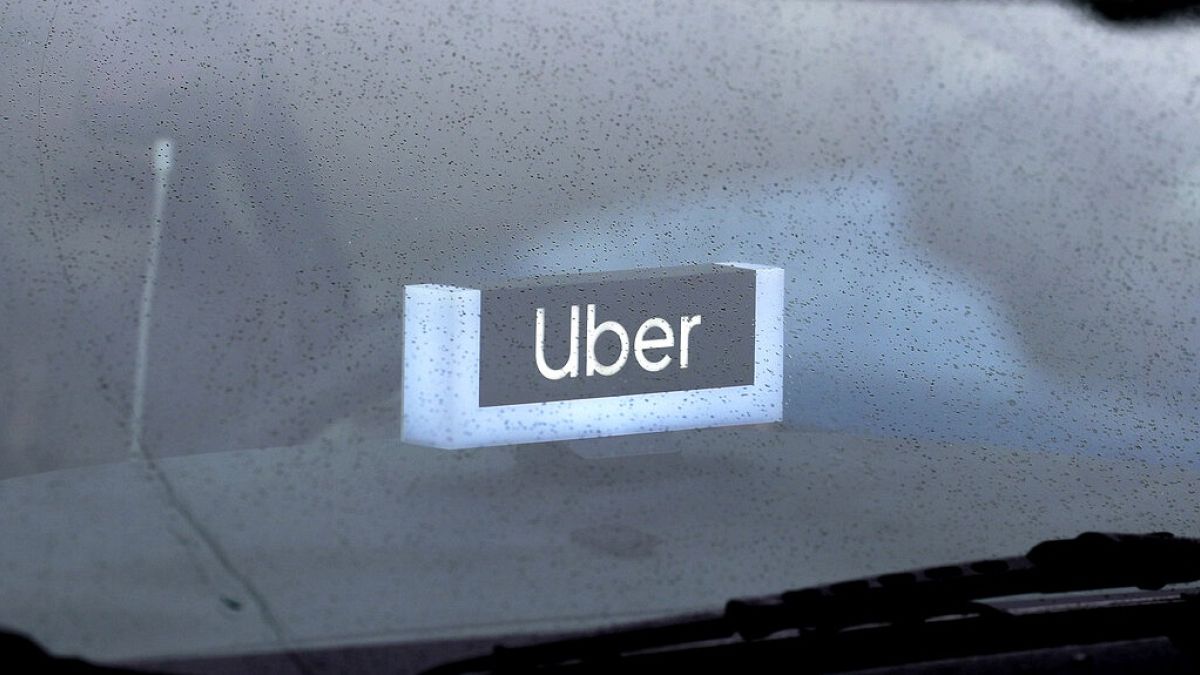The drivers were protesting against their working conditions on Wednesday which they want to be improved.
Uber drivers in Brussels' European district have managed to bring traffic to a near halt during rush hour, in protest against the conditions of so-called gig economy workers
The demonstration was organised ahead of a proposal to improve their rights that the European Commission will present by the end of the year.
Some of the protesters met today with Nicolas Schmit, the European Commissioner for Jobs and Social Rights to discuss the upcoming proposal.
The European Parliament has already previously highlighted their uncertain and poor working condition, but French MEP Leïla Chaibi has now accused the companies responsible of taking advantage of the workers that use their platforms.
"The tech platforms have found a way to take advantage of the status of non-contract workers and the disadvantages of full-time workers," Chaibi told Euronews. "As a result, platform workers are suffering the inconveniences of both of them. The tech companies use the status of non-contract workers in a fraudulent way to exonerate and not assume the responsibilities of a normal employer."
But labour conditions is not the only issue.
Alberto Álvarez, a taxi activist and leader of the union that has managed to kick out Uber twice from the city of Barcelona, warned about the risks of a lack of control with the algorithms they use.
A study by his union looked into how the algorithms from Cabify, Uber and Bolt watch each other to drive prices up.
"As soon as one raises the price, a new dynamic rate is activated," Álvarez said. "The others detect it and also raise the price. Everything works in parallel. They are monitoring each other. And this is totally forbidden.
"To agree on prices is like creating a cartel. The algorithm is the way they've found to break the so-called labour contract."
The algorithms are not public and also considered a trade secret, but it's precisely these algorithms that decide the prices and even the schedules for workers.
According to the European Commission, 11% of the EU workforce has already worked via one of these platforms and the number keep on growing.


